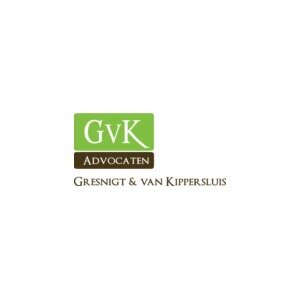Best Tax Increment Financing Lawyers in Utrecht
Share your needs with us, get contacted by law firms.
Free. Takes 2 min.
List of the best lawyers in Utrecht, Netherlands
About Tax Increment Financing Law in Utrecht, Netherlands
Tax Increment Financing (TIF) is a financing method that municipalities utilize to bolster economic development within a specific geographic area. In Utrecht, as in other parts of the Netherlands, TIF is applied to fund public infrastructure projects, stimulate private investment in underdeveloped areas, and enhance public services without increasing property taxes. This innovative financing mechanism captures future tax benefits of real estate improvements and utilizes these funds for current investments. The underlying objective of TIF in Utrecht is to foster urban renewal and encourage sustainable growth within the city.
Why You May Need a Lawyer
Legal expertise in Tax Increment Financing may be necessary for various reasons. People often seek legal advice to understand complex TIF regulations, ensure compliance with local and national laws, and negotiate financing agreements. Developers might require legal help to structure projects, navigate land use and zoning laws, and secure necessary approvals. Additionally, property owners and investors might need a lawyer to understand their tax obligations and rights within a TIF district. Lastly, local government authorities may also seek legal counsel to design TIF plans and ensure they are legally sound and financially viable.
Local Laws Overview
The implementation of TIF in Utrecht is governed by both local and national laws, with an emphasis on transparent governance and sustainable development. Key aspects include:
- The requirement for a detailed project plan, outlining the scope, costs, and anticipated economic impacts.
- Public participation and consultation processes to engage community stakeholders.
- Fiscal accountability and reporting standards to track the impact of the TIF on local budgets and development outcomes.
- Compliance with environmental regulations to ensure projects meet sustainability benchmarks.
Understanding these legal parameters is crucial for anyone involved in TIF projects within Utrecht.
Frequently Asked Questions
What is the primary purpose of Tax Increment Financing?
The primary purpose of TIF is to encourage development in underdeveloped or blighted areas by using the anticipated increase in tax revenues from improved properties to fund development costs.
Who can initiate a TIF project in Utrecht?
TIF projects can be initiated by local government authorities, developers, or other stakeholders collaborating with the municipality to stimulate urban renewal and economic growth.
How are TIF funds typically used?
TIF funds are commonly used for public infrastructure improvements, such as roads, utilities, parks, and other amenities that support development goals.
Is TIF considered a loan?
No, TIF is not a loan. It is a funding mechanism that utilizes future projected tax increments to finance current development projects.
Can TIF be used for residential projects?
Yes, TIF can be applied to residential projects as long as they contribute to the economic or community goals of the TIF district.
How long does a TIF district last?
The lifespan of a TIF district in Utrecht is typically determined at the inception of the project and can vary, though it often ranges from 20 to 30 years.
Do TIF districts require public involvement?
Yes, public involvement is a crucial component of TIF, with stakeholders and community members often consulted during the planning process.
Can a TIF district overlap multiple municipalities?
While primarily focused on one municipality, coordination can exist between multiple municipalities if a project spans larger geographic areas, with special agreements in place.
What happens if a TIF project does not generate expected revenue?
If a TIF project underperforms, adjustments may be made to the project plan, but the financial risk is managed with careful planning from inception.
Are there restrictions on the types of projects eligible for TIF?
TIF projects generally align with local and regional development goals, with restrictions tailored to ensure alignment with broader economic and community objectives.
Additional Resources
For further information on TIF in Utrecht, the following resources may be helpful:
- Utrecht Municipality - Economic Development Office
- Ministry of Interior and Kingdom Relations
- Netherlands Enterprise Agency
- Dutch Association of Municipalities
Next Steps
If you require legal assistance with Tax Increment Financing in Utrecht, consider the following steps:
- Contact a specialized law firm in Dutch real estate and development law.
- Schedule a consultation with a legal expert to discuss your project and understand your obligations and rights.
- Engage with a financial advisor experienced in municipal finance to review economic implications.
- Connect with relevant local governmental bodies to ensure compliance and alignment with public strategies.
Taking these steps can help navigate the complexities of TIF and facilitate successful project outcomes in Utrecht.
Lawzana helps you find the best lawyers and law firms in Utrecht through a curated and pre-screened list of qualified legal professionals. Our platform offers rankings and detailed profiles of attorneys and law firms, allowing you to compare based on practice areas, including Tax Increment Financing, experience, and client feedback.
Each profile includes a description of the firm's areas of practice, client reviews, team members and partners, year of establishment, spoken languages, office locations, contact information, social media presence, and any published articles or resources. Most firms on our platform speak English and are experienced in both local and international legal matters.
Get a quote from top-rated law firms in Utrecht, Netherlands — quickly, securely, and without unnecessary hassle.
Disclaimer:
The information provided on this page is for general informational purposes only and does not constitute legal advice. While we strive to ensure the accuracy and relevance of the content, legal information may change over time, and interpretations of the law can vary. You should always consult with a qualified legal professional for advice specific to your situation.
We disclaim all liability for actions taken or not taken based on the content of this page. If you believe any information is incorrect or outdated, please contact us, and we will review and update it where appropriate.









